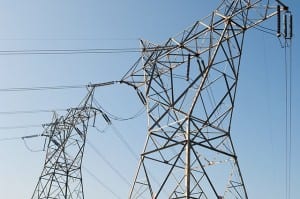
Internal Exxon memos recently brought to light through meticulous investigative reporting by Inside Climate News (ICN) show that senior company executives knew by 1978 that emissions of carbon dioxide from fossil fuels posed significant risks of disrupting the climate.
Over the decade before NASA scientist James Hansen’s 1988 testimony before Congress made the evidence of global warming front page news, Exxon invested in understanding the problem and learned that fossil fuel emissions could drive potentially catastrophic climate impacts. Exxon executives heard advice from their own scientists to take a leadership role in addressing it.
They firmly rejected this advice. Instead, Exxon (later, ExxonMobil, which formed in 1998) financed and engaged in a decades-long industry campaign of doubt-mongering about the scientific evidence of climate change in order to avoid regulation of their products.
In an op-ed published in today’s New York Times, Harvard University historian of science Naomi Oreskes reminds us that Exxon chose a “path of disinformation, denial, and delay” taken from the tobacco industry playbook. For decades, tobacco companies argued that responsibility for the ills of smoking rested with the smoker: individuals made a choice to smoke, and any resulting illness was their responsibility.
When internal memos came to light showing that these companies knowingly spread disinformation about the health risks of their products, they ultimately led to the rejection of that argument in the courts of public opinion and law. In 1995, the U.S. Department of Justice concluded that the industry was legally culpable for knowingly spreading disinformation, bringing charges against them under the Racketeer Influenced and Corrupt Organizations (RICO) act.
ExxonMobil’s climate responsibilities
ICN’s reporting focuses a long-overdue spotlight on ExxonMobil’s responsibilities for climate change. It highlights, for example, growing interest in legal action against ExxonMobil – both for failure to disclose climate risks to shareholders and financial regulators, and for manufacturing doubt to deceive the public. Pressure, they say, could “come from the U.S. Department of Justice, state attorneys general, private plaintiffs in the U.S. or abroad”.
Many of us think about responsibility for climate change as something that falls to each of us individually through the choices we make about energy use, and to governments – what the international climate negotiations refer to as the “common but differentiated responsibilities” among nations.
In a paper in the journal Climatic Change geographer Richard Heede (Climate Accountability Institute), Naomi Oreskes and I argue that ExxonMobil and other large investor-owned fossil energy companies also have significant and distinctive responsibilities for climate change.
We emphasize that a relatively small number of large companies, including ExxonMobil, have produced the fossil energy responsible for a large proportion of the total historic emissions. These corporations commanded a high level of internal scientific and technical expertise and they were in a position to understand the available scientific data. In Exxon’s case, we now know that they not only understood the science, they contributed to it.
An alternative was available to them: given what they knew, they could have adjusted their business models to speed a transition to low-carbon energy by investing in low-carbon energy technologies and carbon capture, constructively engaging in policy design, and helping investors and consumers understand the need to dramatically reduce the adverse impact of their products.
But they did not.
As we note:
“Between 1988 and 2005, ExxonMobil invested over $16 million in a network of front groups that spread misleading claims about climate science, leading to strong public condemnation from the British Royal Society. It also exploited its close relationship with the administration of President George W. Bush to pressure the administration to remove top scientists from leadership roles in the IPCC and the US National Climate Assessment and to promote federal policies driving further reliance on fossil energy.”
Even today, ExxonMobil and others continue to explore for new and increasingly more carbon-polluting sources of fossil fuels. They continue to encourage the expanded use of the products that they know – and, in Exxon’s case, have known for almost forty years – are responsible for disruptive climate change. And, perhaps worst of all, ExxonMobil continues actively sow doubt about the scientific evidence, and to discount the reality and significance of climate change as a problem.
While ExxonMobil’s website acknowledges that “rising greenhouse gas emissions pose significant risks to society and ecosystems,” the company continues to fund climate disinformation through politically influential partners, including the American Legislative Exchange Council (ALEC), a lobbying group that organizes faux climate science briefings for US state legislators and then lobbies them to repeal state renewable energy policies. ExxonMobil executives have rejected repeated calls to leave ALEC, a step recently taken by BP and Dutch Royal Shell, which Shell acknowledged was due explicitly to their disagreement with ALEC’s misrepresentation of climate science. (For several other examples, see the recent UCS Climate Deception Dossiers report).
A world of climate damage
What makes ExxonMobil’s deception so noteworthy is the extent to which its failure to act responsibly has contributed to an increase in climate risks and damages on a global scale.
Since 1978, global annual emissions from burning fossil fuels and cement production have nearly doubled, from 5.1 gigatons of carbon (GtC) to almost 10 GtC today. Since 1988, more than half of all industrial carbon pollution since the dawn of the Industrial Revolution has been emitted.
Given the company’s enormous scientific and technical capacity, financial resources, and influence on US and international climate policies, it is reasonable to conclude that global emissions would have been lower – perhaps, far lower – had Exxon acknowledged and publicized the risks of their products and supported science-based limits on emissions.

According to ExxonMobil’s estimates, global emissions will stay high for decades to come. By 2040, the company estimates that energy-related carbon emissions will be 10 GtC, keeping emissions on a trajectory that will drive temperature increases well above levels needed limit dangerous climate change that company executive first understood nearly forty years ago.
Their projections of future emissions may well be right, of course – but if so, it will be in no small part the due their decades of disinformation and lobbying to avoid sensible climate policies.
What can be done?
Much time has been lost since Exxon first learned of, and could have acted upon, the climate risks of their products. Through concerted efforts it is still be possible for at least some of the major fossil fuel companies to make a transition to responsible energy companies – companies that profitably produce clean, affordable low–carbon energy.
The revelations reported by ICN should help fuel an intensifying public focus on holding these companies accountable for their contributions to the climate problem and reducing their ability to thwart sensible climate policies. Surely, this will require scaling up a broad range of efforts – pressure from sustained shareholder actions, divestment campaigns, consumer boycotts of corporate ‘bad actors’ and litigation may all be needed to effectively change industry behavior.
Heede, Oreskes and I argue that society should hold companies accountable to:
- Stop disseminating climate disinformation, including through their lobbying groups and trade associations;
- Unequivocally support policies consistent with keeping warming below the 2 °C global temperature target;
- Reduce emissions from their operations consistent with and in anticipation of such policy limits; and
- Pay for a share of the costs of climate damages and of preparing for further, now unavoidable impacts.
UCS is significantly scaling up work to drive these changes, as are many others. The world’s essential transition to low-carbon energy may hinge on the scale and success of our collective efforts.
Source: UCSUSA. Reproduced with permission.








